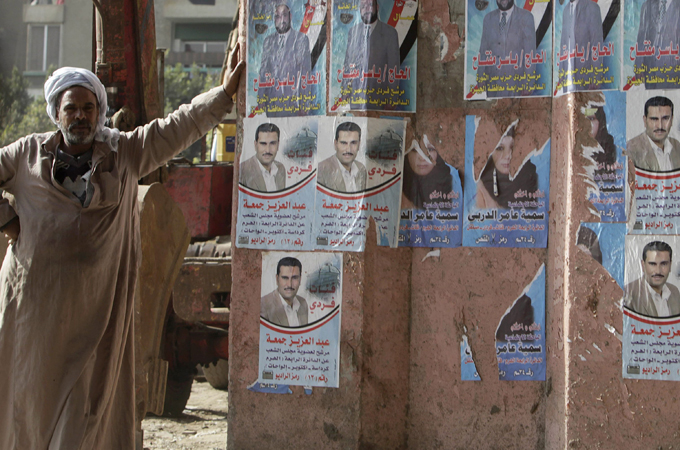Liberal party threatens to boycott Egypt poll
Final phase of voting for lower house has been overshadowed by FEP move to stay away from upper chamber elections.

 |
| The FEP has called on other parties to join it in boycotting the Shura Council election [Reuters] |
The final phase of voting for Egypt’s lower house of parliament has been overshadowed by a threat from a liberal party to boycott elections for the upper chamber.
The Free Egyptians Party (FEP) co-founded by telecom tycoon Naguib Sawiris said on Monday it would boycott in protest against what it said were violations committed by Islamist parties in earlier voting rounds.
Islamists of various stripes are expected to win 60 per cent of the 498-seat lower house, with the Muslim Brotherhood taking some 41 per cent, by its own count.
Runoffs, scheduled to take place on Tuesday and Wednesday, and a re-run in a district where the vote was cancelled in the first round due to irregularities, are set to fill the 11 per cent of seats as yet undecided, according to Brotherhood figures.
The outcome of the runoffs and re-run are unlikely, however, to alter the dominance of the Islamists who now look set to wield major influence over the shape of a new constitution to be drafted by 100-strong body that the new assembly will pick.
Party boycott
The withdrawal of the FEP could be a major blow to the Egyptian Bloc, an alliance of liberal and leftist groups of which it is a key member and which is expected to win some nine per cent of seats in the lower house, putting it in third or fourth place.
The bloc has attracted Christian and secular voters, but non-religious parties have emerged as the weakest players in the new political game.
“The process has turned into a religious competition rather than an electoral one, which amounts to a forging of awareness whose effect on the results is no less than the physical forging that used to happen,” the FEP said in a statement.
Local monitors have said Egypt’s first free parliamentary vote since army officers overthrew the monarchy in 1952 has been marred by minor violations that could cast doubt on the results of some constituencies, but that the infractions would not undermine the legitimacy of the ballot as a whole.
The FEP called on other parties to join it in boycotting the Shura Council election and it was not immediately clear whether the Egyptian Bloc would run without one of its main parties.
Transition
A broader liberal boycott would leave Egyptian politics firmly in the hands of the Islamists and the military, with the whom the Brotherhood has pledged to cooperate during a transition that youth groups would like to see speeded up.
Egypt’s staggered three-stage parliamentary election began on November 28 and drew an unprecedented turnout.
Under a complex system, a third of the seats are reserved for individuals, and some of these will be decided in the runoffs.
The other two thirds are decided by proportional representation among party lists. The lower house will hold its first session on Janusry 23.
Elections to the advisory upper chamber, or Shura Council, begin at the end of January and continue into February.
The military generals, who assumed Mubarak’s powers after he was swept from office last February, will rule until the end of June, by which time they say the country will have elected a new president to whom they will hand over power.